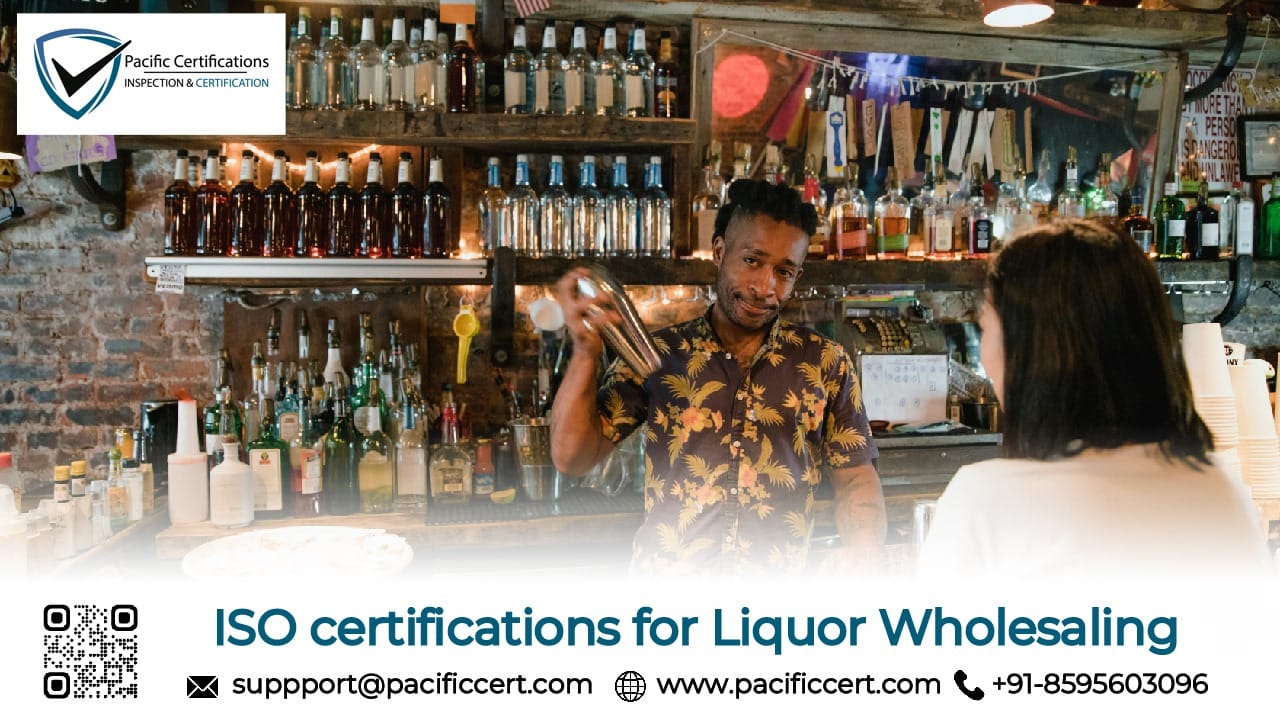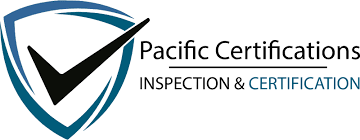ISO Certifications for Liquor Wholesaling Businesses to Meet Global Compliance Needs

Quick Summary
"Liquor wholesalers play a vital role in connecting producers to retailers, and ISO certifications help elevate both operational standards and consumer trust. Key standards include ISO 9001 for quality management, ISO 22000 for food safety, ISO 14001 for environmental responsibility, ISO 45001 for workplace health and safety, and ISO/IEC 27001 for information security. Obtaining certification involves documented processes, internal audits, and third-party assessments. Businesses that implement these standards benefit from reduced errors, safer workplaces, regulatory compliance, environmental and data integrity, and enhanced credibility across the supply chain."
Introduction
Liquor wholesaling is a critical sector that bridges the gap between manufacturers and retail distributors, ensuring the smooth and timely supply of alcoholic beverages. As the demand for quality and transparency in the liquor industry grows, it has become essential for wholesalers to adopt international practices.
This is where ISO standards come into play, offering a framework that ensures liquor wholesalers maintain quality, safety and efficiency throughout their operations.
ISO standards are designed to help businesses improve their processes, meet customer expectations, and comply with regulatory requirements. For liquor wholesalers, adopting these standards improves efficiency & builds trust with manufacturers, retailers, and consumers.
Need ISO certification for your Liquor Wholesaling business? Reach out to us at [email protected] or +91-8595603096 to get started!
Applicable ISO Standards for Liquor Wholesaling
There are several ISO standards that are highly applicable to liquor wholesaling. These standards ensure that the processes related to the handling, storage, and distribution of liquor are conducted with optimal quality. Below are the key ISO standards applicable to liquor wholesalers:
ISO 9001:2015 – Quality Management Systems (QMS)
ISO 9001:2015 is the world's most recognized quality management standard. It helps businesses, including liquor wholesalers, streamline their operations by focusing on customer satisfaction. The standard encourages the establishment of a quality management system that ensures products meet regulatory and customer requirements.
ISO 22000:2018 – Food Safety Management Systems (FSMS)
ISO 22000 ensures that wholesalers implement food safety measures to protect the integrity of alcoholic beverages during storage and transportation. This standard is particularly crucial for liquors that are sensitive to contamination or improper handling.
ISO 14001:2015 – Environmental Management Systems (EMS)
ISO 14001 helps liquor wholesalers reduce their environmental footprint by encouraging efficient use of resources, waste reduction, and adherence to environmental regulations.
ISO 45001:2018 – Occupational Health and Safety (OHS)
ISO 45001 ensures a safe working environment by providing a framework for managing health and safety risks. By implementing this standard, liquor wholesalers can reduce workplace incidents and ensure the well-being of their workforce.
ISO/IEC 27001:2022 – Information Security Management Systems (ISMS)
Information security is becoming increasingly important in every sector, including liquor wholesaling. ISO/IEC 27001 provides guidelines for managing sensitive information such as customer data, inventory systems and supply chain communications.
Click here to find out more applicable standards to your industry
Ensure compliance and elevate your Liquor Wholesaling operations with ISO certification. Contact us today at [email protected] or +91-8595603096.
How We Can Help?
At Pacific Certifications, we specialize in helping businesses achieve ISO certifications through a systematic and reliable process. As a certification body, our role is to assess, audit, and certify your business against relevant ISO standards. We do not provide consultancy or implementation services. Our auditing team ensures that your liquor wholesaling business complies with the necessary standards to achieve certification.
Pacific Certifications offers:
- Pre-certification assessments to evaluate your readiness for ISO certification.
- Detailed audits to ensure compliance with ISO requirements.
- Issuance of certification after successful audit completion.
- Regular surveillance audits to ensure continued compliance over time.
Our audit and certification process is designed to be transparent and beneficial for liquor wholesalers looking to implement or maintain their ISO certifications.
Achieve global standards for quality, safety, and efficiency with ISO certification for Liquor Wholesaling. Email [email protected] or call +91-8595603096 for assistance.
Requirements of ISO certifications for Liquor Wholesaling
Here are the specific requirements for each of the ISO standard that apply to liquor wholesaling:
ISO 9001:2015 – Quality Management System (QMS) Requirements
- Context of the organization: Understanding the internal and external factors that can affect the organization's ability to achieve desired outcomes.
- Leadership: Demonstrating top management commitment to implementing and maintaining the quality management system.
- Risk-based thinking: Identifying and addressing risks and opportunities to prevent undesirable effects and enhance performance.
- Customer focus: Meeting and exceeding customer requirements and improving customer satisfaction.
- Process approach: Establishing, implementing, maintaining, and improving a process-driven approach for managing activities.
- Documented information: Maintaining documented information as evidence of conformity to requirements.
- Performance evaluation: Monitoring, measuring, analyzing, and evaluating the performance of the QMS to continually improve its effectiveness.
ISO 22000:2018 – Food Safety Management System (FSMS) Requirements
- Management commitment: Top management must demonstrate a commitment to establishing, implementing, and maintaining the food safety management system.
- Prerequisite programs (PRPs): Implementing basic conditions and activities that ensure a safe environment throughout the food supply chain.
- Hazard analysis and critical control points (HACCP): Conducting hazard analysis to identify potential food safety hazards and establishing control measures at critical points in the process.
- Food safety policy: Developing a clear policy that reflects the organization’s commitment to food safety.
- Traceability system: Establishing a system to trace products through the supply chain to ensure the identification and withdrawal of unsafe products.
- Internal audits and continual improvement: Regularly reviewing and auditing processes to ensure food safety management effectiveness.
ISO 14001:2015 – Environmental Management System (EMS) Requirements
- Environmental policy: Creating an environmental policy that outlines the organization's commitment to sustainable practices and environmental protection.
- Environmental aspects: Identifying environmental aspects and determining their impact on the environment, such as waste generation, energy consumption, and resource use.
- Legal compliance: Ensuring compliance with applicable environmental laws and regulations.
- Objectives and targets: Setting measurable environmental objectives and continually improving environmental performance.
- Risk and opportunity assessment: Evaluating environmental risks and opportunities and taking action to mitigate or capitalize on them.
- Lifecycle perspective: Considering the entire lifecycle of products and services, from procurement to disposal, to minimize environmental impact.
- Training and awareness: Ensuring employees are trained and aware of their roles and responsibilities concerning the EMS.
ISO 45001:2018 – Occupational Health and Safety Management System (OHSMS) Requirements
- Health and safety policy: Developing a policy that demonstrates the organization's commitment to providing a safe and healthy workplace.
- Hazard identification and risk assessment: Identifying workplace hazards and assessing the risks associated with those hazards, followed by taking measures to control or eliminate them.
- Legal compliance: Complying with applicable health and safety regulations and laws.
- Employee involvement: Engaging workers in identifying hazards and developing health and safety policies and procedures.
- Incident management: Establishing procedures for reporting, investigating, and responding to work-related incidents, injuries, and illnesses.
- Health and safety objectives: Establishing measurable objectives to improve workplace safety and health.
- Emergency preparedness: Implementing plans and procedures to respond to emergencies such as fires, accidents, and spills.
By meeting these requirements, liquor wholesalers can ensure quality & safety, while also complying with international standards.
Get your Liquor Wholesaling business ISO certified! Contact our team at [email protected] or phone +91-8595603096 to begin the process.
Benefits of ISO certifications for Liquor Wholesaling
Here are the key benefits of implementing these ISO standards:
- ISO 9001 helps reduce waste, minimize errors, and improve productivity, leading to cost savings.
- Implementing ISO 9001 ensures that liquor wholesalers meet customer expectations consistently.
- Achieving ISO 9001 certification demonstrates a commitment to quality.
- The focus on continual improvement ensures that liquor wholesalers consistently refine their processes.
- ISO 22000 helps liquor wholesalers identify potential hazards and implement controls to ensure the safety of their products, protecting public health and reducing the risk of recalls.
- The standard ensures compliance with national and international food safety regulations.
- ISO 14001 helps businesses minimize waste and reduce emissions, contributing to environmental sustainability.
- Efficient resource management, waste reduction, and energy conservation can lead to significant cost savings for liquor wholesalers.
- ISO 45001 reduces the likelihood of accidents and injuries, ensuring a safer workplace for employees.
- ISO/IEC 27001 helps businesses safeguard sensitive data.
Conclusion
By implementing these ISO standards, liquor wholesalers can ensure product quality and employee safety, reduce their environmental footprint, protect data, and increase their credibility in the market. ISO certifications are a valuable investment that improves business processes and also fosters trust and confidence among customers.
Pacific Certifications is accredited by ABIS, in case you need support with ISO certification for your Liquor Wholesaling business, please contact us at [email protected] or +91-8595603096.
Ready to get ISO certified?
Contact Pacific Certifications to begin your certification journey today!
Suggested Certifications –
Read more: Pacific Blogs

